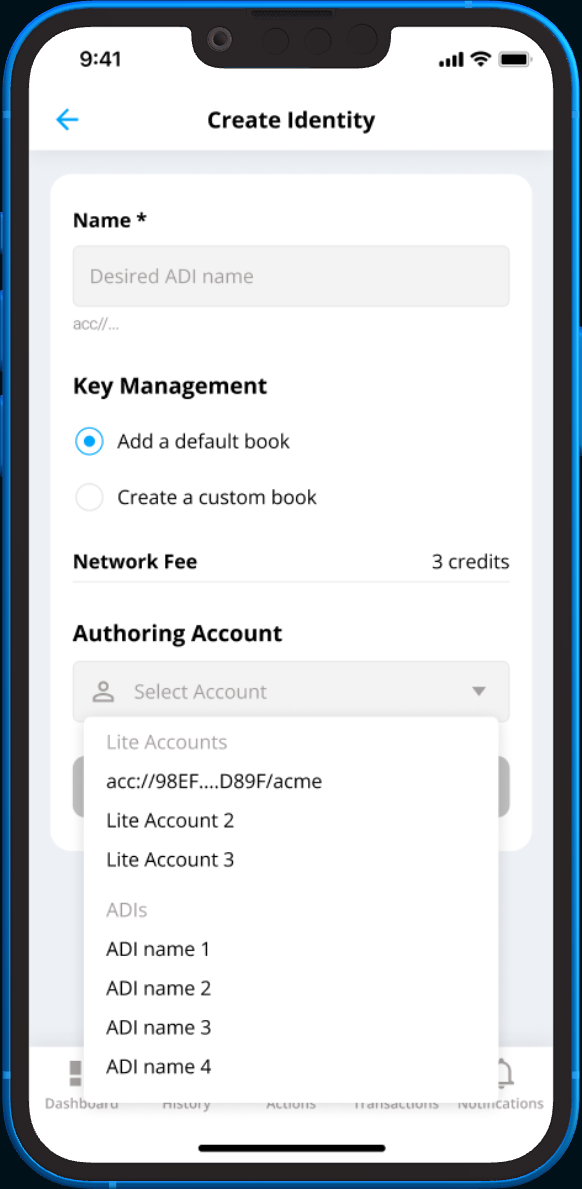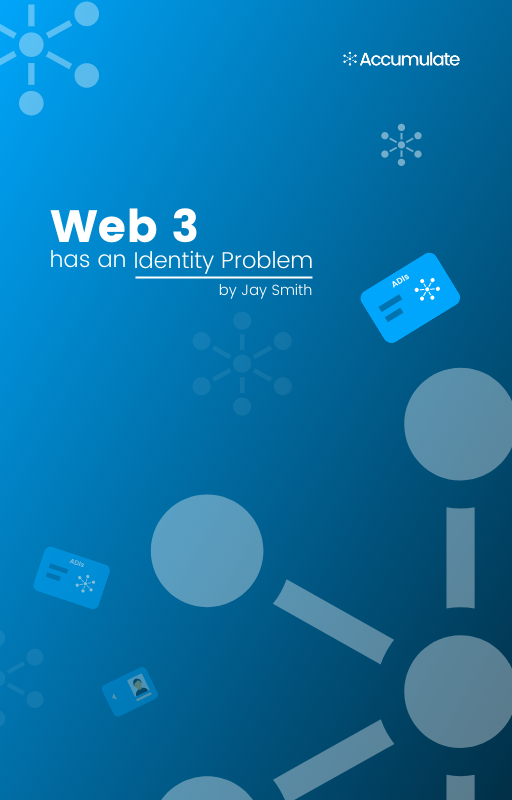The Decentralized Identity Platform
Accumulate Digital Identifiers (ADIs) represent a decentralized identity solution that enables people, organizations, and things to associate data and interact with each other in a secure, private, and streamlined way.

Who or What Can Be Assigned A Digital Identity?
People
Entities
An entity could be a business or any type of organization.
Devices
Any type of device could be assigned an ADI.
Things
What Are Example Use Cases of Decentralized Identities?
- Admissions
- Badges
- Certificates
- Degrees
- Digital ID
- Exams
- Transcripts
- Access Management
- Awards
- Benefit Distribution
- Business Licenses
- Certificates
- Civic Records
- Driver’s Licenses
- Digital ID
- Passports
- Property Records
- Certificates
- Digital ID
- Health Records
- Medical Licenses
- Prescriptions
- Vaccinations
- Awards
- Certificates
- Department ADIs
- Digital ID
- Division ADIs
- Food Services
- Invoices
- Job Reference
- Loyalty Program
- Supply Chain
- Account Details
- Agreements
- Asset Ownership
- Digital ID
- Document Credentialing
- KYC Compliance
- Statements
- Boarding Pass
- Bus, Train, Flight Tickets
- Car Sharing Membership
- Parking Permit
- Travel Card
- Travel Insurance
- Amusement Park Pass
- Gym Membership
- Event Ticket
- Library Pass
- Museum Pass
Accumulate Digital Identifiers (ADIs) can be used in any industry to assign an identity to a person, entity, device, or thing.
An Identity-Focused Blockchain
Accumulate is at the intersection of identity and blockchain which enables organizations to comply with regulations. Integrating identity in a business or organization proves the process and the data.
Identity Ecosystem Use Case
The Sphereon Verifiable Data Exchange (VDX) platform enables organizations to quickly build and deploy advanced solutions to manage, share and process data in a secure, verifiable, and privacy-protective manner. Data or documents are digitally signed at source by the issuer, securely held and controlled by the owner and automatically validated for their authenticity by the recipient.
Based on open W3C standards and specifications for Decentralized Identifiers (DID) and Verifiable Credentials (VC), our data exchange solutions are globally interoperable and can connect seamlessly with existing IAM and Business Applications. This ranges from existing OpenID Connect integrations, to trustless self-issued OpenID Connect and OpenID Connect for Verifiable Presentations
As an example in GovTech, Sphereon built a product with the Dutch Ministry of Justice and Security for a digital ID-card. Initially built for special investigators, it enables the holder to identify themselves and their mandate. They can selectively disclose personal or detailed information depending on who requests this information, e.g. the general public receives only limited information while another judicial branch or government body is entitled to see the full information.

Web 3 Identity Report
Find out how identity will play an important role in the broader scope of Web 3 in this free report.

FAQs on Blockchain Based Identity
What is an ADI?
The W3C Digital Identifier standard outlines how multi blockchain Digital Identifiers (DDIs) can be made interoperable. Why use ADIs instead of DDIs?
How can ADIs be used, and what do they add to various blockchain use cases?
ADIs allow smart contracts, consensus building, validator networks, and enterprise level management of digital assets. ADIs coupled with Accumulate’s unique blockchain architecture allows validators to manage the content of the blockchain dynamically, so that smart contracts can integrate with real world operations. The ADI/Accumulate approach goes beyond the simple and constrained smart contract-based frameworks of other blockchains.
What is a simple use case of ADIs?
How are ADIs used to manage security, tokens, and data?
Can ADIs be used to build networks of blockchain services, data, and endpoints for processes supporting payments, business, education, regulation, entertainment, and social networks?
Yes.
Accumulate developers can assist your team with:
– Understanding the decentralized digital identity opportunity as it relates to your organization.
– Advising on an implementation plan.
– Supporting and growing your decentralized identity use case.